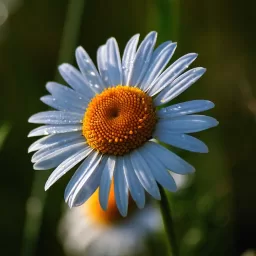The Roles of Flowers, Fruits and Plants in Feng Shui
According to Feng Shui, there are many plants, flowers and fruits which are regarded as lucky charms. When displayed in the appropriate way, any of these beautiful items have the power to enhance luck, encourage harmony, as well as make your office or home a more peaceful place. Also, when chi in unbalanced and negative, using a flower or fruit is the perfect Feng Shui remedy. Below is a list of the common plants, fruits and flowers used by Feng Shui followers:
Pak Choi – This cabbage used widely in Chinese cooking, also known as “pak choy”, is directly translated as “100 types of prosperity luck”. It is because of this that Pak Choi is a highly-desired display for the homes of Chinese people in Hong Kong and the Guangzhou Province, especially among those who speak Cantonese.
Lime – In the Chinese language, the word for lime is similar to the word for prosperity – due to this, people like to keep lime in their homes to induce good fortune and wealth luck.
Pineapple – This fruit is a potent icon of fortune and immense wealth; this is because in the Chinese language, the word for pineapple sounds akin to the phrase for “luck coming your way”.
Pomegranate – In Feng Shui belief, the pomegranate is a fruit of fertility and good fortune. This is because of the many seeds that it holds in its sweet flesh – this is said to be the number of sons that you will have if you consume it. In addition to having many children, the pomegranate will ensure that all of these offspring will be healthy, obedient and happy.
Pumpkin – The pumpkin is a very lucky charm in Feng Shui, and carries the auspicious belief of creating material goods and wealth. In addition to this, the Pumpkin will also bless you with high fertility and many offspring to retain your legacy.
Lotus – Also known as “Lian Hua” in Chinese, this beautiful flower is a potent representation of tranquility, purity and peace. It is the Feng Shui cure for bad luck, as it has the power to repress all negativity and transform it into positivity, as well as provide you with joy and fulfillment. The lotus flower, when placed next a picture of a happy infant, is also an icon of children’s luck, as it is similar to the word for “successive” in Chinese.
Apple – In Chinese, “ping” is the word for apple; this is similar to the word for “peace”, and so this fruit has become an icon of unity, equality and peace.
Grapes – A bunch of grapes together represents high fertility and children’s luck, while the single grape alone is an icon of the transformation of negativity into positivity. Grapes will also benefit you by bringing your gains in the future.
Peach Blossom – The peach blossom is a gorgeous flower and is a manifestation of the spring season; as such, it has become a vivid icon of romance and marriage, as it is Chinese belief that spring is a fresh and lively time to get married.
Peach – The peach is most recognized as being held in the hand of one of the Three Star Deities: Sau, the God of Longevity. This is one of the reasons that the peach is seen as a Feng Shui remedy for illness, and can induce wellbeing and long life. This is further augmented by the story of how the Eight Immortals were called into the garden of the Goddess of the West and were fed peaches of immortality from her fruitful trees.
Peonies – The peony, known in Chinese as “Mou Tan”, is translated as the “Flower of Riches and Honor”. It is the national flower of China, and is regarded in Feng Shui as a symbol of romance, loyalty, youth and feminine beauty. There are many indications of this throughout Chinese literature. The Feng Shui use of this beautiful flower is to draw romance into the home, as well as to activate wealth luck.
chinese garden
#Roles #Flowers #Fruits #Plants #Feng #Shui
Will be pleased to have you visit my pages on social networking .
Facebook page here.
Twitter account is here.
Linkedin account here
Post byBedewy for info askme VISIT GAHZLY

